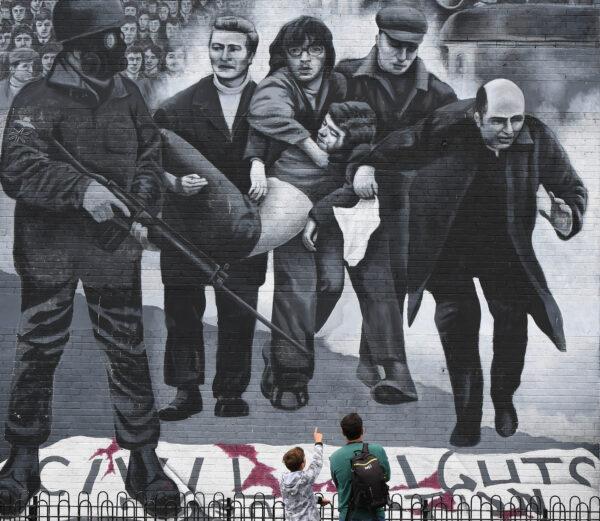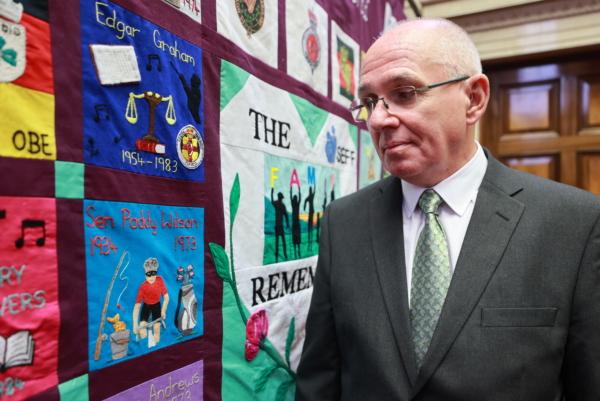Four former soldiers in the British Army have been charged in connection with incidents which took place in Belfast in the midst of The Troubles in 1972.
The prosecutions are almost certainly the last to be brought for incidents during The Troubles.
On May 1, 2024 the guillotine falls on further prosecutions as a result of the passing of the controversial Northern Ireland Troubles (Legacy and Reconciliation) Bill.
Northern Ireland’s Public Prosecution Service (PPS) announced on Thursday that an individual identified only as Soldier F had been charged with the murder of Patrick McVeigh, 44, who was shot during disturbances in the city in the early hours of May 13, 1972.
He will also be prosecuted for the attempted murder of four other people wounded on the same night.
Military Reaction Force Operated in Belfast
The four men are said to have been members of a temporary army unit known as the Military Reaction Force (MRF), which was operating in Belfast in 1972.More than 3,600 people were killed during The Troubles—the period of sectarian strife between 1969 and 1998 when the Provisional IRA sought to force a united Ireland through terrorism—and 1,000 of those killings remain unsolved.
In journalist David McKittrick’s book “Lost Lives,” he described 1972 as a “turmoil of violence and political confusion, with a death toll far higher than any other year.”
Bloody Sunday—when members of the Parachute Regiment shot dead 13 civil rights protesters in Londonderry in January 1972—was followed by a spate of riots and soldiers being assassinated by Provisional IRA snipers, especially in Belfast.
Loyalist and republican mobs often attacked rival communities and burned people out of their homes.
In “Lost Lives,” Mr. McKittrick says Mr. McVeigh, a Catholic who was himself a former soldier, was shot “by undercover soldiers who opened fire on a vigilante group made up of local residents.”
Witnesses said that after the incident they saw the driver of the car carrying the MRF soldiers produce a pass to get through a military checkpoint in Finaghy Road North.

At an inquest into Mr. McVeigh’s death, six soldiers from the MRF claimed they had been fired on by men armed with rifles and revolvers and were returning fire.
Daughter Says Killing Was ‘Real Injustice’
On Thursday, Mr. McVeigh’s daughter Pat welcomed the news that Soldier F had been charged.She told the BBC, “It was a real injustice when my father was killed, he wasn’t a gunman, never was, we need his name cleared.”
The PPS also announced it would not be prosecuting another former soldier in relation to a shooting incident on May 26, 1972 or a second retired serviceman over an incident at Glen Road bus terminus on June 22, 1972 in which four people were shot.
The decisions by the PPS follow the consideration of a reports from the Police Service of Northern Ireland’s legacy investigation branch, which looked into the activities of the MRF, which was also known as the Mobile Reaction Force.
PPS Assistant Director Martin Hardy said, “Regardless of the differing outcomes in relation to each incident examined, we in the PPS recognise that this is a painful day for all victims and families involved and that they have waited a long time to reach this stage of the process.”
Legacy Bill Described as ‘Obscene’
Last year Paul Wilson, whose father Paddy, an SDLP politician, was killed by loyalist paramilitaries in 1972, told The Epoch Times the bill was “obscene” and said, “If you’ve broken the law you need to face justice.”
Some of the anonymised ciphers used to identify the soldiers in the MRF cases are the same as those used previously, which may lead to confusion.
Soldier F, for example, is not the same individual who was charged in connection with Bloody Sunday.
That Soldier F, a former paratrooper, is charged with the murder of James Wray and William McKinney and with attempted murder involving five other people in Derry, on Jan. 30, 1972. He is due to go on trial at Belfast Crown Court later this year.







